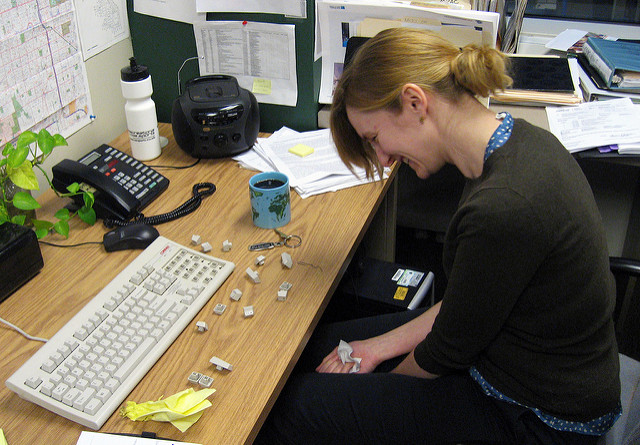Turning Obsessive Compulsive Disorder Into A Healthy Obsessive Compulsive Personality
Did you know that many successful entrepreneurs, scientists and artists owe their achievements to their Obsessive Compulsive Personality? In our jargon filled narratives I thought I would clarify the differences between life wrecking qualities of the Obsessive Compulsive Disorder and life enhancing aspects of Obsessive Compulsive Personality. I am also hoping to give some tips to transform the disorder into a personality asset.
Obsessive Compulsive Disorder (OCD) Versus Obsessive Compulsive Personality (OCP)
Obsessions can be described as persisting unwanted thoughts whilst compulsions as persisting unwanted behaviours. However what determines an OC person from a non OC person is not the existence of these symptoms but their use of similar coping mechanisms.
These coping mechanisms lead to OC Disorder when used excessively. I have talked in an earlier blog post about how some toilet training mistakes involving too much or too little control can increase the susceptibility to develop OCD.
The worldwide prevalence of obsessive-compulsive disorder is approximately 2% of the general population. Even though many OCD sufferers attempt to conceal their symptoms the effects can be debilitating to the person’s life. These people may spend hours worrying how they might have been perceived, about being contaminated by dirt or germs, about being ill, about hurting or offending somebody, unable to make even the unimportant decisions. Symptoms such as constant checking; repetitive, intrusive thoughts of a somatic, aggressive, or sexual nature; extreme slowness; and an inordinate concern with orderliness and symmetry can cause OCD sufferers to become depressed. They can sleep all the time, they may be unable to work or socialise, and they may develop addictions.
OC Personality however is meticulous, careful with details, perfectionist with high expectations from themselves as well as from people they work and live with. They may, however, be unemotional and rational so much so that they might be perceived as robots. They probably adhere to high moral ideals. Their rigidity can turn into stubbornness and inability to empathise.
Those associated with Obsessive Compulsive Personality are often praised as hard working, responsible, trustworthy and successful people. They can also be criticised as difficult to live and work with by those who are closest to them.
Coping Or Defence Mechanisms
We all use coping mechanisms to sustain our psychological balance. We do this for three reasons:
1) We attempt to protect our emotional security by avoiding a painful feeling
2) We protect our self respect
3) We resolve an internal conflict
Obsessions come about as a result of a coping mechanism called isolation. This is separating the feeling from the information. For example psychologists can listen to very traumatic experiences of their clients using this coping mechanism. Similarly surgeons cannot operate if they think their patients are mothers and fathers whose life can end if they make a mistake. When a person tends to value (sil) separate feelings from the events and over value thinking they are considered as obsessive personalities. When the person can process the feelings associated with the information when the time is appropriate this is the sign of a resilient person. The inability to do so is what leads to dysfunctional obsessive thoughts.
The characteristic coping mechanism that leads to compulsions is undoing. We all can experience feelings such as guilt or shame as a result of something we do or think. However when the person experiences these feelings as too intense to manage an unconscious attempt to erase or compensate the original thought or behaviour gets activated.
When we experience a threatening feeling we turn it into its opposite instead of accepting our ambivalence. This is a defence mechanism called reaction formation and is at the origin of both obsessions and compulsions. Obsessive compulsive people tend to respect authority figures and would find it very difficult to accept any critical or angry thoughts and feelings towards them.
These defences are not problematic in themselves. In fact they are very adaptive for healthy functioning. However their overuse and the interaction with the environment create complications.
Healing Obsessive Compulsive Disorder
If you suffer from OCD here are some tips to turn your symptoms into a healthy personality trait:
- Get professional help to overcome your unconscious fears of experiencing and showing your antagonistic feelings of criticism, anger despite the shame and guilt that normally follows.
- Commit to the therapeutic process by trusting your therapist and allowing them to guide you to take risks you have not been allowed to take before.
- Be patient with yourself.
Being able to enjoy the spectrum of all feelings will give you a sense of being really alive, energetic and human that is your birthright.





